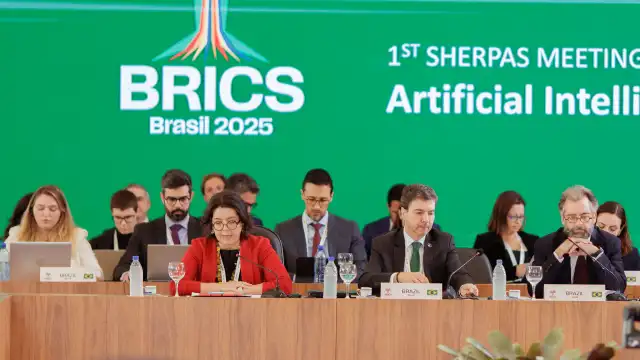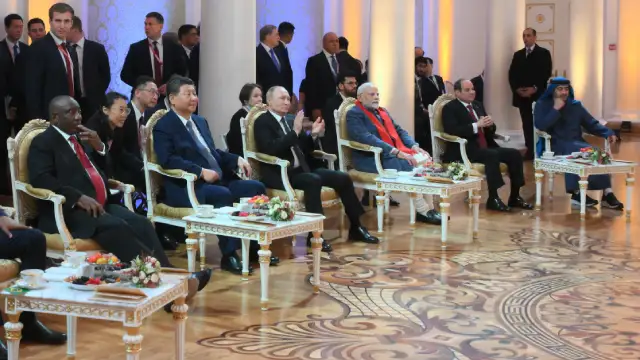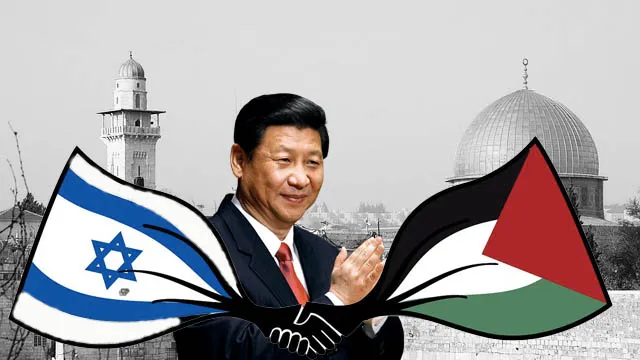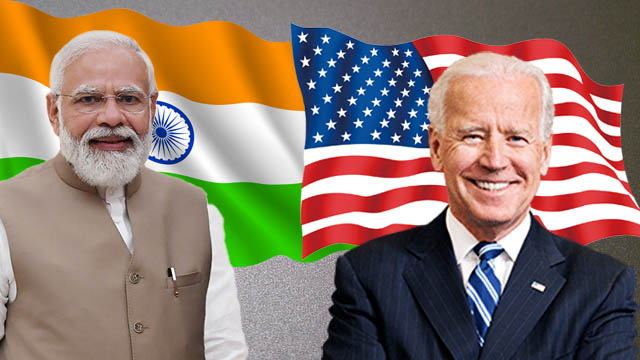The 17th BRICS summit will take place in Rio de Janeiro on July 6th-7th. The BRICS bloc’s expansion has created broader participation, stronger representation and increased global influence. A recent programme on the Chinese broadcaster CGTN has highlighted this.
In the CGTN’s latest episode of “Global South Voices”, Pakistan’s Senator Mushahid Hussain Sayed discusses BRICS cooperation with prominent voices from Brazil, Iran, South Africa and India, examining its origins, current framework, achievements and future prospects.
Changing global economic rules
In the programme, Professor Paulo Nogueira Batista, former IMF executive director from Brazil, argues that the West, particularly America, has abandoned the rules-based order it had created after the Second World War.
When neoliberalism served their interests, Western countries championed it. Now, facing China’s rise and declining competitiveness, they have embraced protectionism.
This has created a fractured and unpredictable global economy.
He argues that BRICS must recognise this shift and work collectively to ensure fairer global economic interactions.
In South Africa, journalist Faizal Dawjee argues that the rules-based order only ever applied to the West.
BRICS expansion responds to this inconsistency and affirms the Global South’s right to set its own terms.
BRICS solidarity in practice
The panel examines how BRICS solidarity operates in real situations.
From Tehran, Mohammad Hussain Baqeri, founder and chairman of the Iqbal Forum, cites Middle Eastern issues to emphasise the importance of stronger unity among BRICS members amid international challenges.
Mr Dawjee highlights South Africa’s case at the International Court of Justice to halt Israel’s military operations in Gaza as a pivotal moment.
Despite Western pressure to withdraw the case, the Global South supported South Africa.
He calls this “the spirit of Bandung”.
Muhammad Saqib, executive director of the Dubai-based Centre of Geoeconomics for the Global South, notes that BRICS must expand further.
His research indicates that 76% of the Global South’s needs could be met within the South itself, but BRICS must become the coordinating mechanism.
Building institutions
The panellists emphasise building effective institutions to support Global South’s ambitions.
The New Development Bank represents one of BRICS’ most significant achievements, successfully mobilising resources, expanding membership and financing infrastructure projects.
As the bank grows, it demonstrates BRICS’ commitment to development through cooperation rather than conditionality.
The panellists suggest BRICS should better utilise its soft power through deeper exchanges in education, culture and innovation.
With flexible mechanisms and shared leadership, the bloc can become a dynamic force that reflects the Global South’s diversity while advancing collective goals.
Senator Hussain concludes that BRICS remains the most promising platform for the Global South to assert its voice.
With growing influence, expanding partnerships and established institutions, BRICS has moved beyond vision to become a vehicle for change.
Watch the full programme on BRICS expansion here.
Join our channels on Telegram and WhatsApp to receive geopolitical updates, videos and more.







